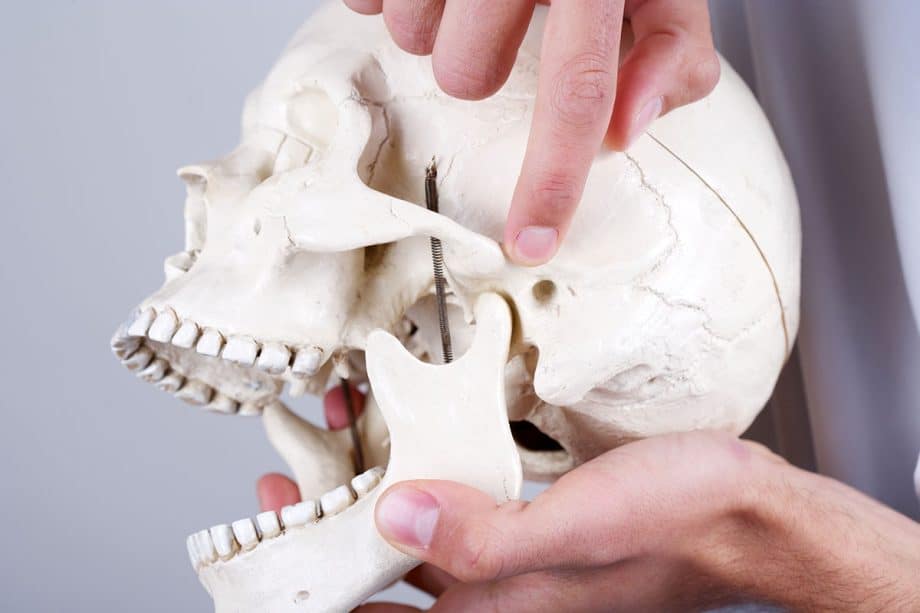TMJ is an abbreviation used to refer to TMJ disorder, a condition affecting the jaw. TMJ stands for temporomandibular joint, the location on each side of your face where your lower jaw connects to your head. The TMJ can become inflamed or misaligned, causing discomfort and limited range of motion in the jaw.
If you think you may have problems with your TMJ, you may be wondering where to go for diagnosis and treatment. Here’s what you need to know.
What is TMJ Disorder?
The temporomandibular joints can develop a variety of problems such as inflammation, misalignment, slipped disc, and more. Any problem with the TMJ will typically fall under the category of TMJ disorder.
Common Symptoms of TMJ Disorder
TMJ disorder is characterized by the following symptoms:
- Pain in the jaw
- Pain in the area of the TMJ
- Pain when chewing
- Limited range of motion in the jaw
- Difficulty opening and closing your mouth
- Popping or clicking sound when chewing or moving your jaw
- Headaches, especially in the temple region of the head
- Muscle tension in the face
- Ear pain
- Neck pain
What Causes TMJ Disorder?
There are a variety of potential causes for TMJ disorder, including:
- Injury. An injury, such as a blow to the face or a fall could knock the TMJ out of alignment or strain the muscles and ligaments of the joint.
- Overuse. Excessive chewing, talking, singing, yawning, or other behaviors that require repetitive movement or over-extension of the jaw could cause TMJ disorder.
- Misuse. TMJ disorder can be caused by misuse of the jaw, such as opening containers or removing tags with your teeth and chewing on non-food items.
- Arthritis. If you have arthritis that affects other joints in your body, it could also impact your TMJ.
- Auto-immune diseases. Certain auto-immune diseases can cause general inflammation, which can lead to TMJ disorder.
How is TMJ Disorder Diagnosed?
You may have a feeling that you have TMJ disorder based on the symptoms listed above. If so, you should talk to a dentist or orthodontist for an official diagnosis. Dentists and orthodontists specialize in the structure and anatomy of your mouth and jaw. Orthodontists are especially knowledgeable about jaw and bite alignment. They can evaluate occlusion (bite pattern) to determine if your upper and lower teeth meet together properly. If not, bite malocclusion (misaligned bite) is likely the cause of your TMJ disorder.
How is TMJ Disorder Treated?
There are a variety of treatments for TMJ disorder. Some will provide temporary relief of your symptoms. But if a misaligned bite pattern is the cause of the disorder, your symptoms will recur until you receive orthodontic treatment to correct your bite alignment.
Orthodontic treatment can provide a permanent cure for your TMJ disorder. In some cases orthognathic surgery (jaw surgery) may be necessary to correct bite alignment. Most treatment plans will include braces to align the teeth and the bite.
Why Choose Hass Family Orthodontics?
If you’re suffering from TMJ symptoms, rest assured that there are treatment options that provide permanent relief. Hass Family Orthodontics provides TMJ treatment that gets to the source of the problem so your symptoms won’t keep coming back. Once your jaw is properly aligned, you’ll experience better dental, oral, and overall health. You’ll be able to eat the foods you enjoy without worrying about TMJ flare-ups.
To learn more, call 828-464-5300 or contact us today to schedule an appointment.

